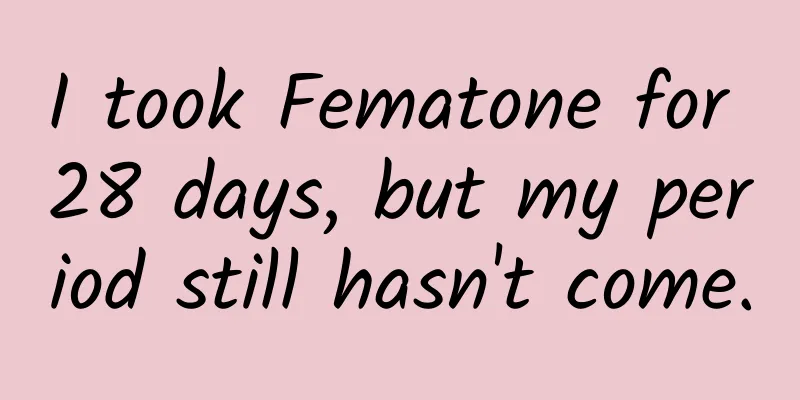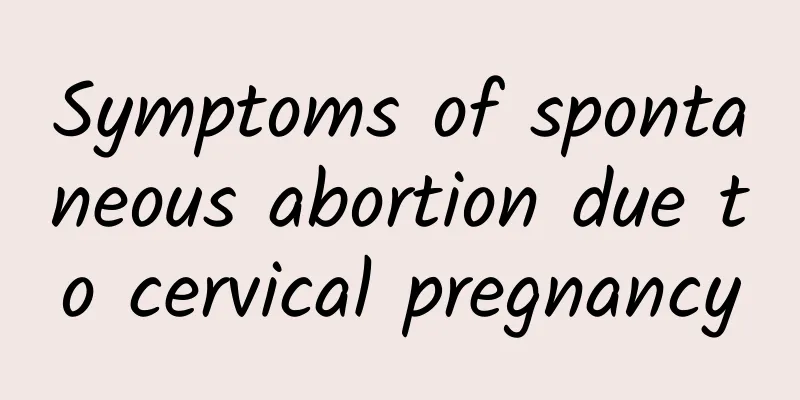I took Fematone for 28 days, but my period still hasn't come.

|
If menstruation does not come after taking Femoston for 28 days, it may be related to intrauterine adhesions, short medication withdrawal time or pregnancy. Different reasons require different treatments. 1. Intrauterine adhesions may be a reason. Some women may experience intrauterine adhesions after artificial abortion or other intrauterine operations. In this case, the endometrium cannot proliferate and secrete normally, resulting in no endometrial exfoliation and no menstruation. Just like a blocked water pipe, the water cannot flow smoothly and naturally cannot be discharged normally. 2. Short medication withdrawal time is also a common reason. After taking Fentaton continuously, if the medication is not stopped in time, the hormone level in the body may be high. In this case, due to the lack of the withdrawal effect of estrogen and progesterone, the endometrium will not be exfoliated, and there will be no menstruation. It is like a kettle that is continuously heated, the water temperature remains high and cannot be cooled and condensed. 3. Pregnancy is also a situation that needs to be considered. Some women may become pregnant if they do not take contraceptive measures during the medication period. After pregnancy, there will naturally be no menstrual cramps. Just like the seeds have sprouted, the soil no longer needs to be renewed every month. For these situations, it is recommended to check and treat them under the guidance of a doctor. Gynecological ultrasound examinations can be used to understand the condition of the uterine cavity and endometrium, check hormone levels to confirm whether there is a high hormone level, and also to determine whether pregnancy is present. Through these auxiliary examinations, doctors can make a clear diagnosis and develop further treatment plans. If you are experiencing similar situations, do not adjust the dosage of medication or stop taking medication on your own. Professional medical advice and examination are the key to solving the problem. Maintaining good living habits, proper diet and moderate exercise can also help the body restore normal menstrual cycles. Remember, a healthy body requires our careful care. |
<<: When is the best time to have medical abortion?
>>: Which is more serious, uterine fibroids or cysts?
Recommend
Four commonly used medical methods for diagnosing cervical erosion
The diagnosis of cervical erosion requires profes...
What is the reason for missing menstruation?
What is the reason for missed menstruation? This ...
The cost and taboos of uterine-protection abortion
In today's society, many young people get pre...
Women should master the common methods of caring for vulvar leukoplakia
According to the survey, vulvar leukoplakia is a ...
It takes 2.5 hours of walking to eat a traditional rice dumpling.
During the Dragon Boat Festival, many people cann...
What causes multiple ovarian cysts?
What are the causes of multiple ovarian cysts? Ov...
Dare not eat anything to lose weight? Health experts: Choose the right food and eat three meals a day to lose weight
Are you on a diet but still have the wrong idea o...
How much does it cost to check for vulvar itching?
If female friends are unfortunately attacked by v...
Several common and effective measures to prevent dysmenorrhea
Dysmenorrhea is a gynecological disease with pain...
How can cervical erosion be identified? Does cervical erosion require medication?
How can cervical erosion be identified? Do I need...
What are the methods for checking chocolate cysts?
Regarding the methods of examining chocolate cyst...
Four main causes of pelvic inflammatory disease
Pelvic inflammatory disease can cause great distr...
How is bacterial vaginosis caused?
Bacterial vaginosis is one of the most common vag...
Can I only take painkillers for dysmenorrhea? Is it because of uterine cold?
Dysmenorrhea is not necessarily caused by uterine...
Correct exercise method for patients with threatened abortion
Pregnant mothers still only know about resting in...









